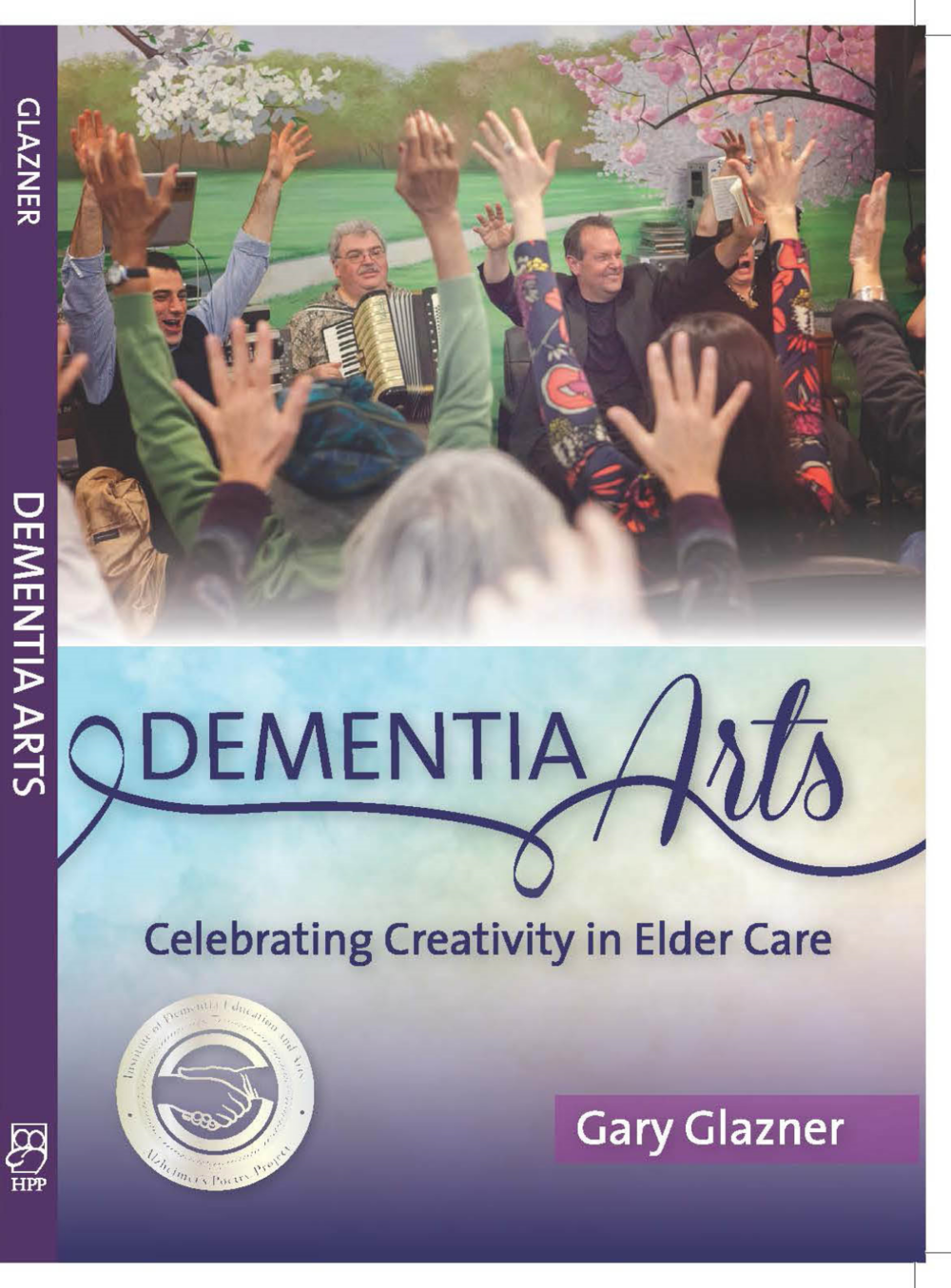Rock with Rhymes that Resonate
The audience was quiet, partially because some of the people were slumped over in their wheelchairs, eyes closed. Gary Glazner stood in front of the group, wondering if he could engage them. He had received a grant to offer a poetry workshop in a memory care unit and he had carefully selected several familiar poems. He’d introduced himself to everyone and he was ready to inspire people through reading poetry. But were they ready for him? He took a breath and began.
“I shot an arrow into the air,” Gary said to the seemingly comatose group.
“And it fell down I know not where,” said an elderly man without even raising his head.
That was the beginning spark for Gary Glazner’s Alzheimer’s Poetry Project, a process he created to help engage and connect with those living with dementia through reading aloud and discussing poetry.
“There are four steps to the process,” Gary explains. “First, a call and response, where I read a line of poetry and the group echoes it. Then we discuss the poem. Next, we add props to the experience and finally, we create our own poem.”
A few of the familiar poems Gary uses include:
The Tyger—William Blake
The Owl and the Pussy Cat—Edward Lear
Wynken, Blynken, and Nod—Eugene Field
How do I Love Thee?—Elizabeth Barrett Browning
Purple Cow—Gelette Burgess
Jabberwocky—Lewis Carroll
Daffodils—William Wordsworth
His website, www.alzpoetry.com, is brimming with verse and rich with recommendations.
Gary has shared poetry with people living with dementia all over the world. His usual session lasts around an hour. He often centers his poems on a theme, such as Summer, Birds, Trees, or Food, and enriches the gathering with objects that engage the senses. For example, to supplement summer-time poetry, he might include a bucket of sand and a conch shell. He brings a misting spray to simulate an ocean breeze and lets people smell suntan lotion. For refreshments, he suggests fresh strawberries, lemonade, popsicles, or homemade ice cream. This four-step poetry process also works at home with just two care partners
“Poetry goes beyond the autobiographical memory and offers care partners a way to communicate with someone who has memory loss,” Gary says.
Good news for the Kansas City area: Gary is doing a poetry workshop here in early October. For more information, contact Deb Campbell at kcseniortheatre@gmail.com
For more information on Gary and the Alzheimer’s Poetry Project, visit www.alzpoetry.com
Gary’s book is a great resource: Dementia Arts: Celebrating Creativity in Elder Care
Deborah Shouse is the author of Love in the Land of Dementia: Finding Hope in the Caregiver’s Journey.


Deborah, I found this article so interesting because poetry has always been something I never understood and really never liked that much. In high school I had an English teacher that I chose each year to be my English teacher because she was so fabulous and I just adored her. She had a true love of poetry and tried each year to install in us the love she had of poetry. Never stuck with me. I know that I have missed a beautiful part of literature. Hope you had a lovely holiday and that your New Year will be filled with joy, health, and happiness. Much love to you and Ron. Nezzie
Sent from my iPad
>
One of the things I love about Gary’s teachings–it’s never too late to learn to enjoy a new art form. Love, d
Deborah,
An interesting coincidence, at least for me. Last night I was reading a book on public speaking. “Call and response” was the first step. Audiences are audiences, I’m concluding.
Dane
What nice kismet.
What a wonderful idea to use poetry! I recall hearing our pastor at Church of the Resurrection tell about a service held at church for those with dementia and memory loss. People who were typically silent broke out singing old hymns and songs. The memories are there, just locked away and hoping to be ignited by poetry and music!
Thanks for your comment, Susie. I love connecting through different avenues.